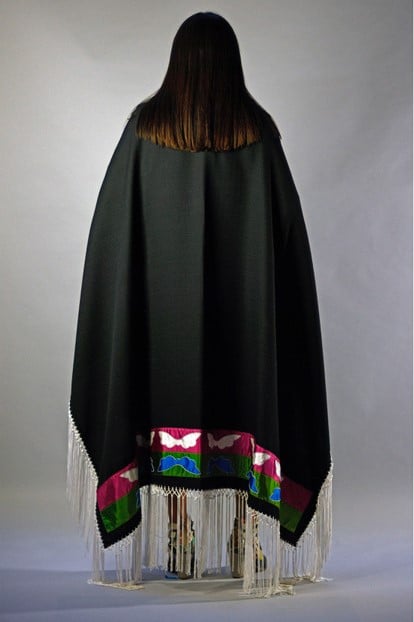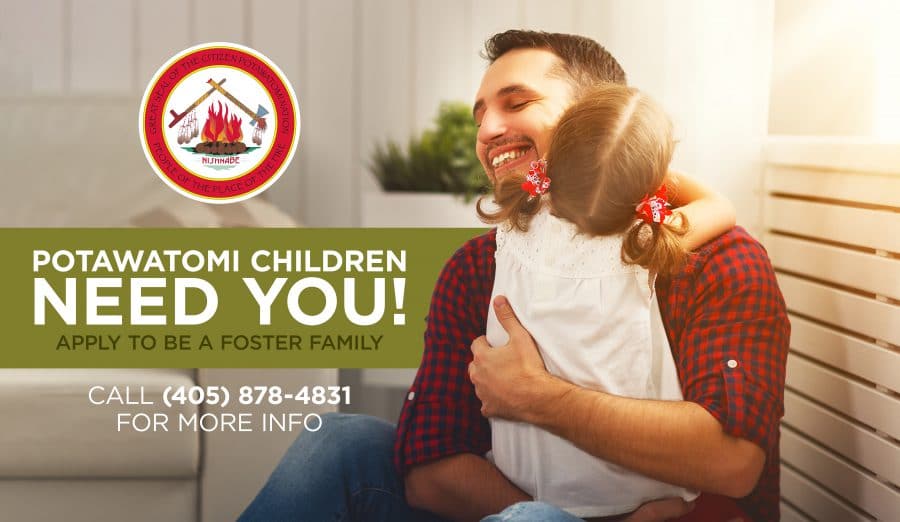Two CPN staff members join this episode to discuss critical resources their departments offer, including CARES Act funding. We also hear from artists who cultivated a unique art exhibit that brings 12 Citizen Potawatomi and Anishnabe artists together for a spark of beauty during a pandemic.
Citizen Potawatomi Nation CARES Act programs

In July, CPN hired a staff of seven to process applications and distribute CPN CARES Funds. With two phases currently in process, the COVID Relief Department is working to efficiently and quickly help those in need. COVID Relief Manager Patty Heer sat down with Hownikan Podcast to discuss the new department’s tasks and the funds available to Tribal members.
“All of the information that you need is on the Citizen Potawatomi Nation homepage. It will guide you right into registering and applying. There’s also total descriptions to every program, how to qualify and what documents you need, who’s eligible for the programs. If you send end a completed application, the process goes smoothly and quickly,” Heer said.
Visit potawatomi.org/cares for more information. Staff is available by email at CPNCares@potawatomi.org or by phone at 1-833-481-0638. The call center is open Monday through Friday from 8 a.m. to 5 p.m. After hours, please leave a message with a name and phone number, and staff will return your call as quickly as possible.

Woodland artists celebrate contemporary work at Jacobson House Native Art Center
Located on the University of Oklahoma campus in Norman, the Jacobson House Native Art Center stands as a testament to the creativity and beauty of Indigenous art throughout the last century. The latest exhibit, Azhwakwa: Contemporary Anishinaabe Art, features five Citizen Potawatomi Nation artists. Odawa, Ojibwe, Prairie Band Potawatomi, Gun Lake Potawatomi and Chippewas of Rama First Nation artists are also featured at Jacobson House from August 22 through October 18.
“Through the art that we’re trying to do, the art that we’ve been working on, I think that we’re helping to acknowledge that culture and that identity that we have and bring it forward and present it. So it remains, maybe not in its original form, but it adapts and helps nourish us and helps inspire us,” said Christopher Short, a textile artist featured in the exhibit. He collaborates with his mother, Cathy, and the two submitted a shawl for display in Jacobson House.
The gallery will be open Saturday and Sundays from 1 p.m. to 5 p.m. through October 18 as well as by appointment. Visit jacobsonhouse.art/exhibitions or facebook.com/jacobsonhouseart for more information.
FireLodge Children and Family Services seeks foster families during pandemic
During the pandemic, foster care and adoption service centers across the country have seen a drastic decrease in applications, including CPN’s FireLodge Children and Family Services. However, there may be no more important time to step up to care for children less than ideal circumstances. FireLodge’s Foster Care and Adoption Manager Kendra Lowden discusses the importance of keeping services available.

“People have a lot of other things on their plate right now. … But what I’d like to people to know is that being a foster parent, it’s like being an extension of a parent, and we have a lot of services and a lot of support in place to help make this process easier, especially in a time like this when we have a pandemic,” Lowden said.
For more information, please contact FireLodge Children & Family Services at 405-878-4831 or email Kendra Lowden at kendra.lowden@potawatomi.org. To learn more about FireLodge Children & Family Services, please visit potawatomi.org/firelodge or on Facebook.
Learning Language
It’s time for Learning Language, when CPN Language Department Director Justin Neely teaches vocabulary, songs, stories and more. Today’s vocabulary lesson teaches helpful phrases for everyday life.
- Ni je pi ga dokiyen? When did you wake up?
- Bos geshep ngi-doki. I woke up early this morning.
- Jeshek ngi-doki. I just woke up.
- Gkipkosh ne? Are you sleepy?
- Bgéji nkipkosh. I am a little sleepy.
- Cho ngi-mba shwatso dbegnak. No, I went to sleep at 8 o’clock.
- Wegni je netem ga zhechkeyen? What did you do first?
- Nneshke netem. I got out of bed first.
- Ngi-biskonye. I got dressed.
- Iw je ngi gziyabde. Then I brushed my teeth.
- Ngi-bmepto wa je mno bmadzeyan. I went for a run so I will be in good shape/health.
- Ni pi je ezhyayen? Where are you going?
- Abdek nwi-zhya Napes. I have to go to the office.
- Skongemgok nde-zhya. I am going to school.
- Gdotmes ne? Are you busy?
- Cho ndotmesi. I am not busy.
- Konege bgéji ndotmes. I am a little busy.
- Gbekte ne? Are you hungry?
- Ndepsenye. I am full.
- Ngi-gishwisen. I already ate.
- Mine kedon. Say it again.
- Noch gzhiwen. Talk louder.
- Noch bedan gdonen. Talk slower.
For more information and opportunities with language, including self-paced classes, visit cpn.news/language. You can find an online dictionary at potawatomidictonary.com as well as videos on YouTube. There are also Potawatomi courses on the language learning app Memrise.
Hownikan Podcast is produced and distributed by Citizen Potawatomi Nation’s Public Information Department. Subscribe to Hownikan Podcast on Apple Podcasts, Spotify, SoundCloud and wherever you find your favorite shows. Find digital editions of the Tribal newspaper here.
